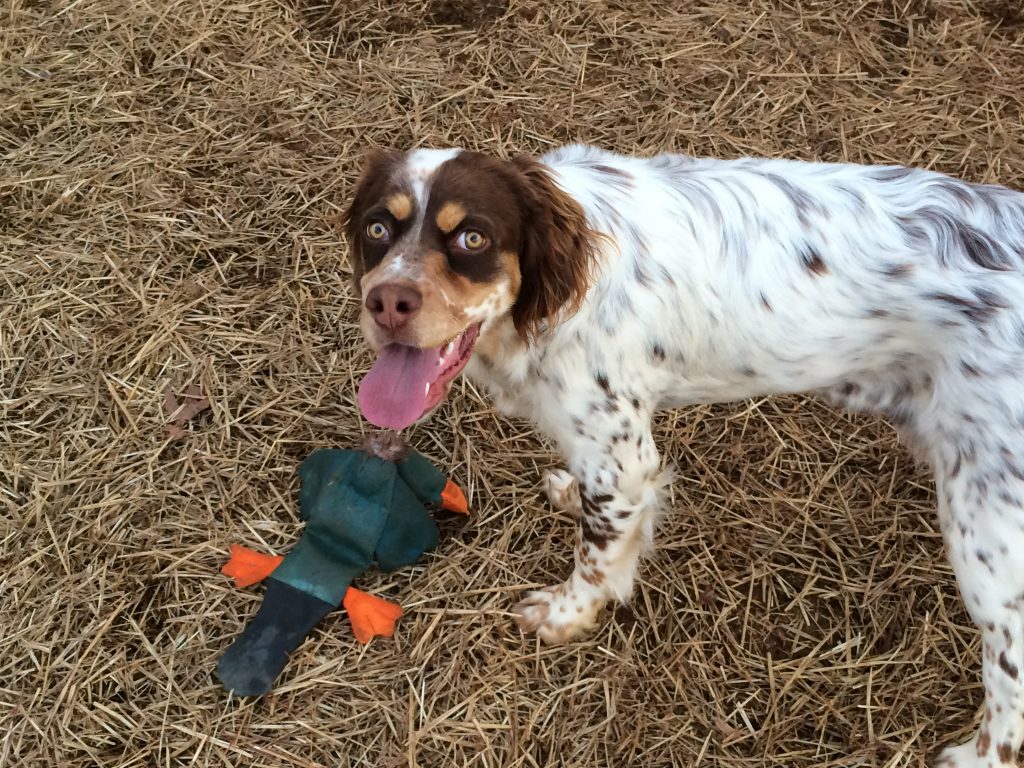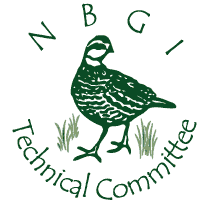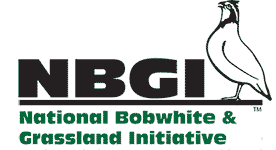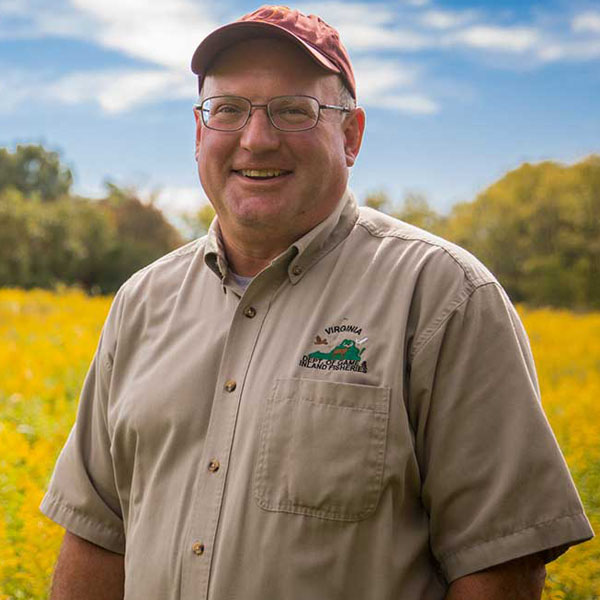I thought long and hard before I bought my latest bird dog puppy … as much about whether to buy her, as from whom. I have watched the decline in quail numbers and the even faster decline in quail hunters for 25 years now. And my number of avid quail hunters has declined on a more personal level. Some have passed on to the great bird coverts in Heaven. If you ever wonder what that might be like you need to read the great story by long ago outdoor writer Corey Ford. Its title is “The Road to Tinkamtown.” I suggest you read it somewhere alone and keep a kerchief handy, because grown men do cry from time-to- time.

Ultimately, I decided that much like when I bought my first bird dog, not knowing much about them, but with a good friend who did, to take the plunge back into puppy-dom. I do not have a knack for training dogs, though this time I do have more patience.
One of the biggest things I learned in training dogs before Tilley Bell was no matter what, always end a training session on a high note. I have also learned a few things about what you want to see in a good bird dog. Some hard-headedness is good because hard-headed dogs don’t tend to be quitters or slackers. Intelligence is very important – and if you look close enough when picking a pup you ought to be able to see “someone is home” up there between those ears. And they need some drive. This is again hard to tell at first, but it will become quickly apparent.
Tilley Bell (Til for short, but now Tilbert for some reason) will retrieve a quail dummy as many times as I stand there and throw it for her…she seems to have a limitless supply of energy and optimism. She is also a happy dog, not a worrier. So with a dog like Tilly Bell, it becomes a matter of molding that talent into a hunting companion that you can rely on. Time will tell whether I can turn her into such a dog or not, but I can assure you I won’t do it by breaking her spirit. That’s not what a bird dog trainer means by “breaking a dog.” You have a lot of raw talent that any coach would recognize, now you remove bad habits, build good ones and use encouragement, reward and sometimes toughness to allow that talent to reach its potential.
I named my new dog, now almost eight months old, Tilley Bell, after my Mom. She is now 83 and that was her nickname as a kid. Tilley Bell. And she was a marble-shooting, athletic Tom Boy who has faced down many health struggles now for decades with a smile, kindness, perseverance, faith and love. It’s how we ought to treat each other, and how we ought to train our dogs. A good Mom would never criticize a child without first having built that child’s confidence up with praise. A good coach would never berate a player unnecessarily in a mean- spirited way. And a good bird dog trainer won’t either.
My dogs have always been what some refer to as “meat dogs.” Which suits me, as if I were defined in dogs terms, that’s about what I’d be. What it means is no frills, businesslike, hard-working, not fancy, but always enjoying the hunt and driven to find birds. And I’d also say more steady than flashy, able to hunt all day and not burn out in two hours.
I have great respect for those who run their dogs in field trials. Their skill with dogs and often horses is amazing. Think about how hard it is to train one of these animals or the other – then combine the two. But field trials are not my mug of Joe. I’m not a social person in the sense that on weekends I seek solitude or a few close friends, not crowds and competition.
If you are thinking of getting into bird hunting don’t be scared off by believing your dog needs to be steady to wing and shot, with a high tail on every point followed by a perfect retrieve every time. The only judges you really have to face are yourself, and maybe an understanding friend from time to time (because why have any friends who are not understanding)?
By the way – “setters” were trained to crouch or “set” when they pointed birds centuries ago – because the hunters then used hoop nets, not shotguns, and the nets were thrown over the dogs, just past them, in an attempt to encircle the gamebirds…therefore a high standing dog would have then been a hindrance. I still love seeing some of that trait in a setter today (Tilbert is a Llewellin Setter).
As far as bird hunting in the 21st Century…in Virginia…it is being done successfully by many. Is it back to being the “good ole days?” No. And it may never be. But is it fun? Yes. Is it good? Yes, at times. Does it take extraordinary ability? No. Does it take work? Yes. Does it take perhaps a change in your view of success? Yes. Is it worth getting into now? Absolutely. I would not have bought Tilley if it were not.
Several of my friends and I have noticed what appears to be an uptick in participation. There’s some excitement brewing on upland bird hunting chats. There are pockets in Virginia where quail are quite abundant. Woodcock seem to be fairing OK, though still declining nationally…largely due to habitat loss. And much like for quail and grouse, complicated by other factors like predation and disease. But there IS hope. Once hope is lost, all is lost. If all we focus on is gloom and doom there won’t be any new hunters wanting to find out what it’s like to ease up on a point and feel those bugs churning in your gut, and bracing for that flurry of activity called a flush…and no matter how many times it happens, every time is like the first time all over again. So go forth young men and women, and get that first bird dog puppy.


